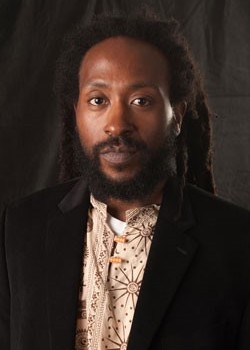Rafael Outland has joined Syracuse University School of Education’s Counseling and Human Services program as a visiting assistant teaching professor. Before this appointment, he worked as an assistant professor in the Department of Counselor Education at SUNY Brockport. He earned a Ph.D. in Counselor Education and Supervision from the University of Rochester, a master’s degree in Education (with a School Counseling focus) from Boston University, and a bachelor’s degree in Psychology from Clark Atlanta University.
 Outland’s research focuses on the influence of historical and institutional violence on the lived experiences of marginalized populations, primarily poor Black and Brown youth. His recent research investigated the impact of police killings on the family and community of youth victims in the Northeast, Midwest, and West Coast of the United States. His recent scholarly works include “Why Black and Brown Youth Distrust Police,” “Living with Trauma,” and the book A Beautiful Imperfection: 365 Days In Babylon (2022).
Outland’s research focuses on the influence of historical and institutional violence on the lived experiences of marginalized populations, primarily poor Black and Brown youth. His recent research investigated the impact of police killings on the family and community of youth victims in the Northeast, Midwest, and West Coast of the United States. His recent scholarly works include “Why Black and Brown Youth Distrust Police,” “Living with Trauma,” and the book A Beautiful Imperfection: 365 Days In Babylon (2022).
Outland has remained a vital support and advocate for Rochester’ s urban youth through collaboration with local organizations, including Goodfellas, Teen Empowerment, the Gandhi Institute for NonViolence, In-Control, Citizens Action Network, and the People’ s Liberation Program. He remains involved in national and international campaigns to release elder US Political Prisoners and Prisoners of War, including the Free Maroon and Kamau Coalitions and the Free Mumia Campaign.
Meet Professor Outland
- Hometown: College Park, GA
- Alma Maters: Clark Atlanta University, Boston University, University of Rochester
- Favorite Book: How Europe Underdeveloped Africa, by Walter Rodney
- Favorite Movie: The Spook Who Sat by the Door
- Favorite Music: Roots Reggae, Resistance Hip Hop, “Together” by Dead Prez/Tupac Amaru Shakur, Peter Tosh, Bob Marley
- Hobbies/Activities: Reading, Exercise, Political Discourse, Agriculture
- Person Who Most Inspires You: Historian and political economist Walter Rodney (see book above)
What excites you most about joining Syracuse University?
An opportunity to work and learn with students and colleagues, and this is a moment to be part of permanent transformation taking place at Syracuse University.
What inspired you to go into teaching, especially the “teaching of counselors”?
I taught my first graduate level course during my doctoral studies. The experience, coupled with students’ feedback, felt quite natural and inspiring. From here, I decided to change trajectories post-graduation from entering a clinical mental health setting to academia.
Describe your teaching philosophy …
My teaching philosophy is grounded in the following pedagogical approaches: open discourse, experiential learning, and developing a critical analysis, consciousness, and perspective towards the world we live in. These approaches can assist counseling students to explore, reflect, and understand their own beliefs, values, and actions, as well as those of populations they wish to serve.
How do you like to engage students in and outside the classroom?
In the classroom: Open discourse, experiential learning, development of a critical analysis and perspective.
Outside the classroom: Community engagement/building activities, in-person/virtual meetings, multicultural potluck, professional/social outings, and organizing/activism.
I value engaging with students through all of the mediums listed, and more. Counselor education is an ongoing process and is not limited to the classroom or therapy sessions. Thus, I carry a strong belief that we counselors need to understand, embrace, advocate, and work alongside the communities, clients, and students we serve.
Given your academic journey, what one piece of advice do you think is most useful to pass along to SOE students?
“Respect yourself, love yourself, and put yourself to work!” (That’s a line from Dead Prez’s song, “Root of All Evil.”)
